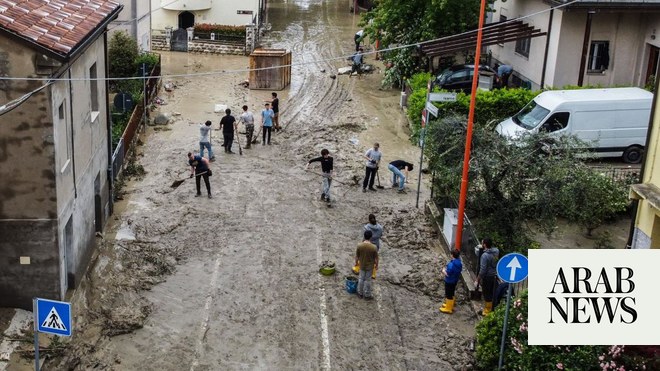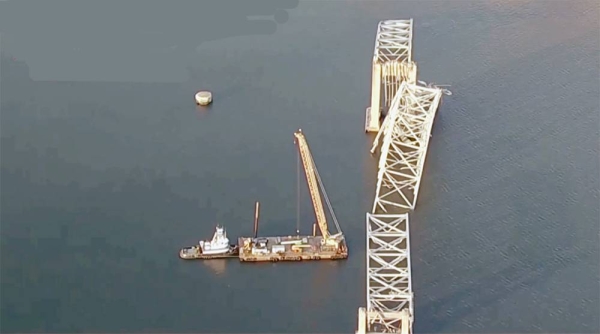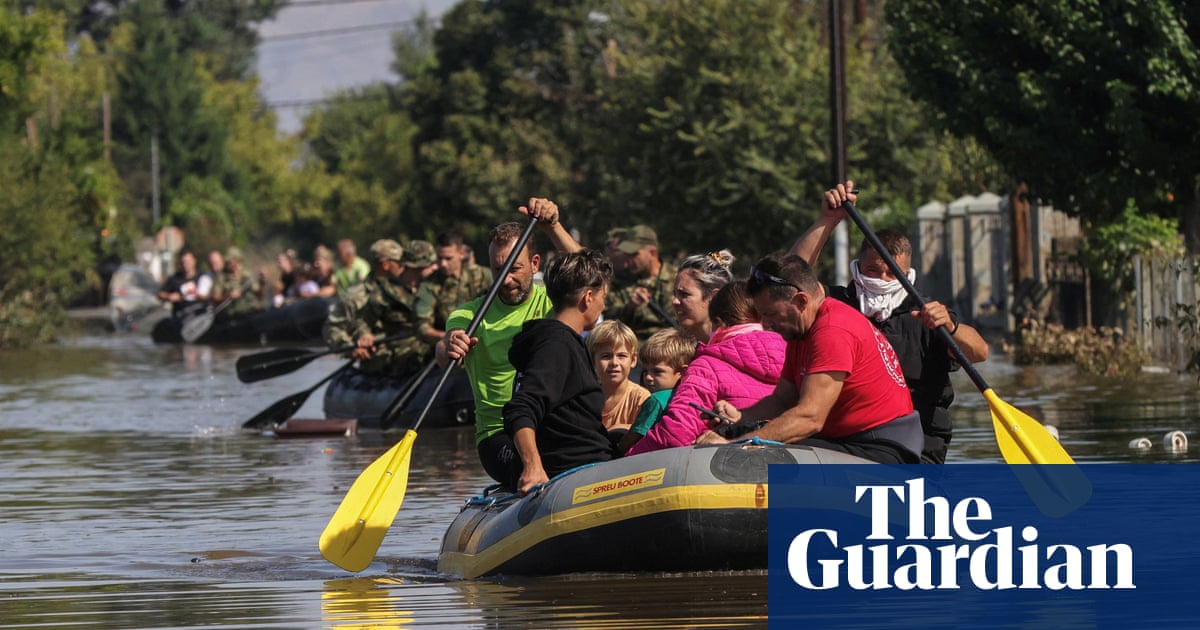
Italy’s government has blamed the firm that operated the collapsed bridge for the disaster
The Morandi viaduct, completed in 1967, spans dozens of railway lines
GENOA, Italy: Rescue workers toiled through a second night Thursday in a desperate bid to find survivors in the rubble of a Genoa bridge which caved in during a heavy rainstorm, killing at least 39 people and injuring 16 more.
A vast span of the Morandi bridge collapsed in the northern port city on Tuesday, sending about 35 cars and several trucks plunging 45 meters (150 feet) onto railway tracks below.
Italy’s government has blamed the firm that operated the collapsed bridge for the disaster and announced a state of emergency in the region.
Children aged eight, 12 and 13 were among the dead, Interior Minister Matteo Salvini said, adding that more people were still missing. Sixteen people were injured.
Three Chileans, who live in Italy, and four French nationals were also killed.
The tragedy has focused anger on the structural problems that have dogged the decades old Morandi bridge and the private sector firm Autostrade per l’Italia, which is currently in charge of operating and maintaining swathes of the country’s motorways.
Deputy prime minister Luigi Di Maio said the tragedy “could have been avoided.”
“Autostrade should have done maintenance and didn’t do it,” he alleged.
Prime Minister Giuseppe Conte also confirmed that his government would push to revoke the company’s contract for the A10 motorway, which includes the bridge, while Transport Minister Danilo Toninelli said the company should be fined up to €150 million ($170 million).
The firm, which said the bridge had been undergoing maintenance work, however, released a statement refuting accusations of underfunding of motorway infrastructure.
“In the last five years (2012-2017) the company’s investment in the security, maintenance and strengthening of the network has been over one billion euros a year,” it said.
Survivors recounted the heart-stopping moment when the bridge buckled, tossing vehicles and hunks of concrete into the abyss.
Davide Capello, a former goalkeeper for Italian Serie A club Cagliari, plunged with his car but was unscathed.
“I was driving along the bridge, and at a certain point I saw the road in front of me collapse, and I went down with the car,” he told TV news channel Sky TG24.
As cars and trucks tumbled off the bridge, Afifi Idriss, 39, a Moroccan truck driver, just managed to stop in time.
“I saw the green lorry in front of me stop and then reverse so I stopped too, locked the truck and ran,” he said.
While around a dozen apartment blocks that stand in the shadow of the viaduct were largely spared the impact of the falling concrete, the Liguria regional government said some 634 people had been evacuated.
Interior Minister Matteo Salvini said the homes would have to be pulled down.
The incident is the latest in a string of bridge collapses in Italy, a country prone to damage from seismic activity but where infrastructure generally is showing the effects of a faltering economy.
The Morandi viaduct, completed in 1967, spans dozens of railway lines.
The bridge has been riddled with structural problems since its construction, which has led to expensive maintenance and severe criticism from engineering experts.
On Tuesday engineering website “Ingegneri.info” called it “a tragedy waiting to happen.”
Conte also announced after a cabinet meeting Wednesday that a national day of mourning was being planned. Media reports said it would be held on Saturday to coincide with some of the funerals.
There would also be a 12-month state of emergency in and around Genoa, Conte added, with five million euros of funds going into recovery work.












